By Blanca Gonzalez
UNION-TRIBUNE STAFF WRITER
April 24, 2008
Hamilton “Mac” McWhorter was 7 years old when a barnstorming pilot visited his hometown and he took his first ride in an airplane.
From that moment, he knew he never wanted to do anything else.
The future Navy commander was a naval aviation cadet undergoing training when Pearl Harbor was attacked. Within a couple of years he had become the first American pilot to achieve “Ace” status flying a new airplane, the Hellcat.
By May 1945, he had shot down at least 12 Japanese planes and escaped danger on several occasions. In a book he wrote more than 50 years later, retired Cmdr. McWhorter recounted his war experiences, including battles over North Africa and the Pacific.
Cmdr. McWhorter died of natural causes April 12 at his home in El Cajon. He was 87.
His wife, Louise, said he loved flying and that was a big reason he made a career in the Navy. He later taught three of their five children to fly and after retiring from the Navy, he became a flight instructor at Gillespie Field.
“He was so proud that so many of his students became airline pilots,” she said.
Cmdr. McWhorter didn't talk much about the war to his family until he joined other fighter aces and started touring air shows where the members of the “greatest generation” shared their experiences.
Cmdr. McWhorter was born Feb. 8, 1921, in Athens, Ga., to Hamilton McWhorter Jr. and Nettie Lou Peurifoy McWhorter.
He met his future wife in November 1942 in Norfolk, Va., at a party thrown for a friend who had been shot down over the Atlantic during the invasion of North Africa. The friend had been reported dead, but when his friends found out he had been rescued, they threw a resurrection party.
Eight weeks later, Louise and “Mac” McWhorter were married. The couple had five children and later opened their home to a struggling Chinese immigrant family for a few years.
Cmdr. McWhorter was a member of the American Fighter Aces Association, the Distinguished Flying Cross Society and the Tailhook Association. He received several military honors including five Distinguished Cross Medals. Cmdr. McWhorter was elected to the Georgia Aviation Hall of Fame in 1989.
The family moved to El Cajon in 1968, and he retired as the executive officer of Naval Air Station, Miramar in 1969. Cmdr. McWhorter spent the ensuing years as a “gentleman farmer” tending to avocado trees at the family's home, as a flight instructor and an author.
He coauthored a book, “The First Hellcat Ace,” that was published in 2001. In 2006, Cmdr. McWhorter was interviewed for a History Channel segment on dogfights.
Besides his wife, survivors include sons, Donald of Lemon Grove, William of El Cajon, Hamilton IV of San Diego and Jon of San Diego; daughter, Georgia Scheingross of San Diego; and six grandchildren.
A memorial service is scheduled for 4 p.m. Sunday at First United Methodist Church of El Cajon. Ashes will be interred at 1 p.m. May 5 at Fort Rosecrans National Cemetery.
Donations are suggested to the Navy-Marine Corps Relief Society.

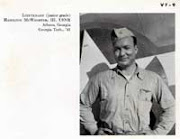

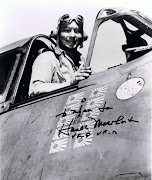





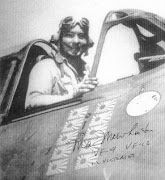


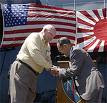
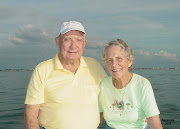

No comments:
Post a Comment